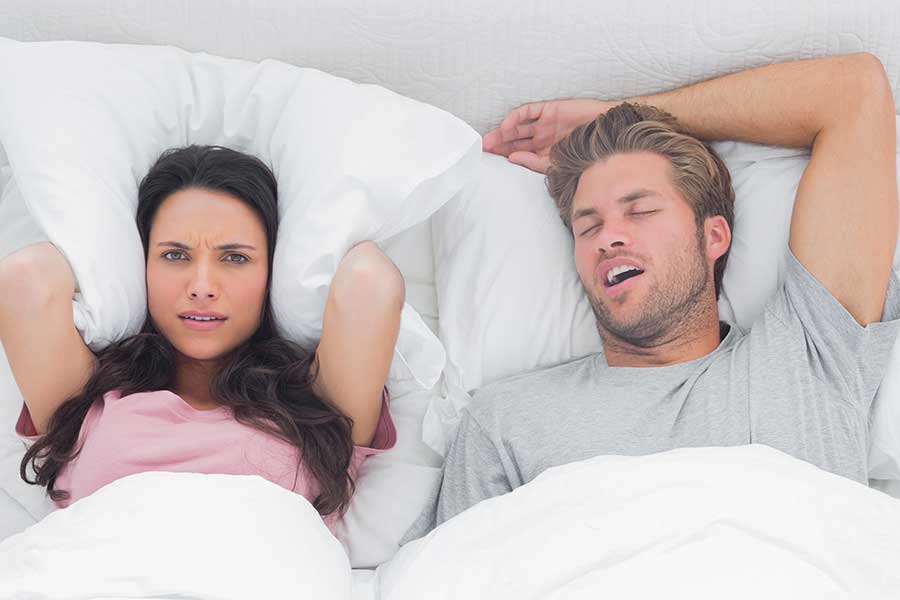 Sleep apnoea is where the sufferer goes without air for 10 seconds or more during sleep. Read on for causes and treatments of sleep apnoea.
Sleep apnoea is where the sufferer goes without air for 10 seconds or more during sleep. Read on for causes and treatments of sleep apnoea.
The word apnoea means ‘without breath’, and is defined as a medical issue when the sufferer goes without breath during sleep for 10 seconds or more.
The difference between sleep apnoeas and normal snoring is that, when you snore, there is generally some sort of obstruction that partially stops airflow during sleep. This results in the tissues of your throat, nose or mouth to vibrate and create a ‘snoring’ sound. With sleep apnoea, there is a full obstruction that stops airflow completely.
There are two types of sleep apnoea.
The first, and significantly more common, is obstructive sleep apnoea, which accounts for 90-96 per cent of all apnoeas, according to the Australasian Sleep Association (ASA). In this case, the upper airway collapses or becomes blocked, causing a period of no airflow. According to the ASA, roughly a quarter (24 per cent) of middle-aged males and 9 per cent of middle-aged females suffer from obstructive sleep apnoea.
Far less common is central sleep apnoea, which is caused by reasons other than airway obstruction, such as issues stemming from the brain or weakened chest muscles.
The result of apnoeas means that the sufferer will wake many times during the night, not receiving enough sleep and ending up feeling excessively tired during the daytime. In the long term, the built-up effects of repeated lack of oxygen can result in more serious side effects such as high blood pressure, heart disease, depression, stroke and diabetes.
Some causes behind sleep apnoea are unavoidable. Your gender and age are factors that can increase your risk for experiencing sleep apnoea, as men and post-menopausal women
Other risk factors for sleep apnoea are more manageable. Weight gain and obesity are major factors, as the added weight can obstruct the airways. Drinking alcohol before bed and being a regular smoker can also contribute to sleep apnoea.
Treatment will depend largely on the individual sufferer and the extent of the issue.
Mild cases may be improved with changes such as weight loss, reduced alcohol consumption and changing or limiting medications. Some people may try nasal sprays, while others will be good candidates for nasal surgery to reduce natural obstructions.
Your dentist may be able to offer dental solutions that reposition the mouth and tongue during sleep to optimise airflow. Such items look and feel a little like wearing a mouthguard, but can offer a quick and easy fix for apnoea sufferers.
Contact Palmerston Dental Surgery today to understand how we can help you overcome sleep apnoea. Call our team on 08 8932 1544.
